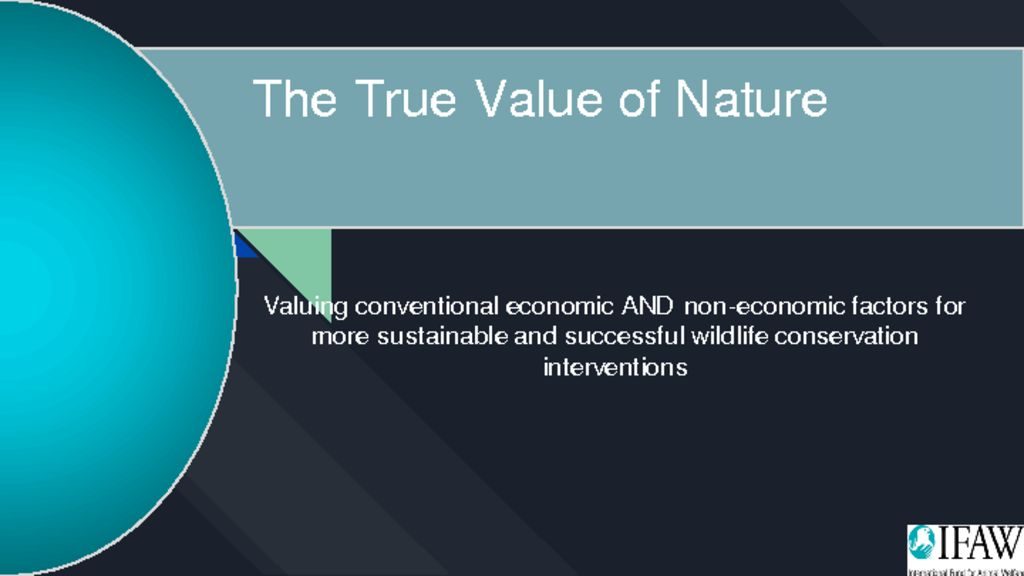24 May The True Value of Nature
As pressure on wildlife and habitat continue to increase, we need to find sustainable and effective ways to develop and implement conservation solutions. Many wildlife conservation programs and projects work to improve equitable benefit sharing of the economic value of wildlife as the primary incentive for communities to conserve wildlife. These projects are often successful while the project funding continues, but what happens when the funding is pulled or when another more lucrative opportunity is offered to exploit the land or wildlife? How can a project be successful in generating support within the community and reflect the true values of a deep connection to wildlife, the land, and fellow community members? Non-economic factors like health and education have been incorporated into conservation projects, while other important societal factors such as cultural diversity and resilience, community vitality, and good governance are beginning to be explored by innovative conservation project managers. These factors, when clearly understood and assessed from the community perspective, fundamentally enhance the happiness and wellbeing of the community and ultimately will contribute to the success of wildlife conservation projects over the long term while also supporting greater community cohesion and ecosystem health.
Using a framework (such as GNH) to plan community-based wildlife conservation programs around an holistic set of social wellbeing indicators can contribute to positive wildlife conservation outcomes and project sustainability. Findings indicate that structured and deliberate community engagement of project planning and implementation – or better yet facilitating the community to drive conservation – is essential to success. Future research recommendations include the development and testing of a survey tool to analyze the wellbeing of a community organized around the GNH domains, or other human wellbeing indexes.
Key Themes:
Engagement, Education and Empowerment, Governance, Rights & Conflict, Factors of Success in Community Conservation
Presenters:
Beth Allgood (International Fund for Animal Welfare)
Mark Hofberg (International Fund for Animal Welfare)
Anna Rathmann (Great Plains Conservation Foundation)
Fernando Ochoa (Conservation Alliance for Laguna San Ignacio)



